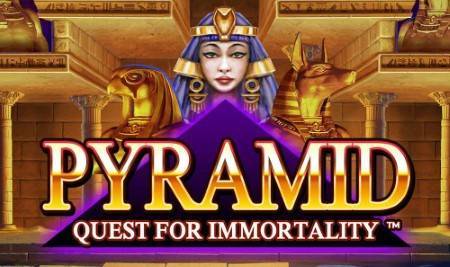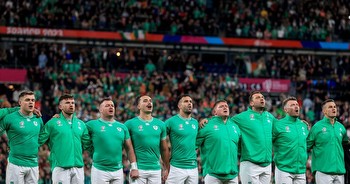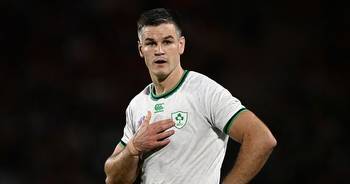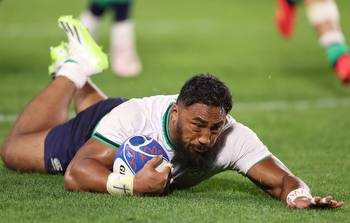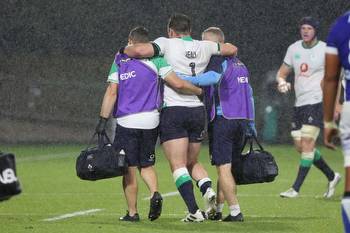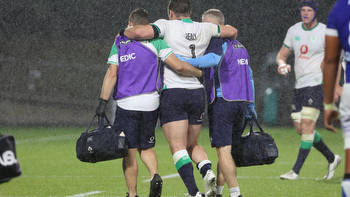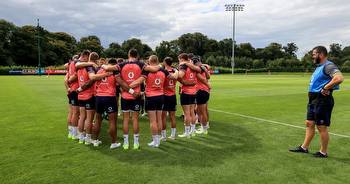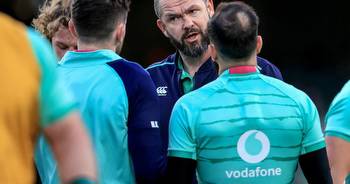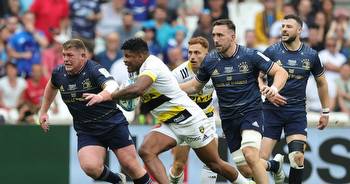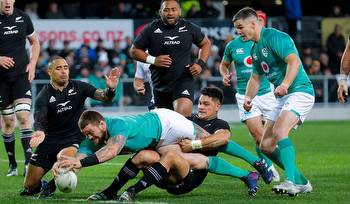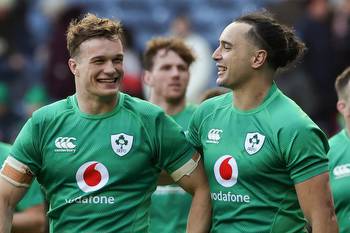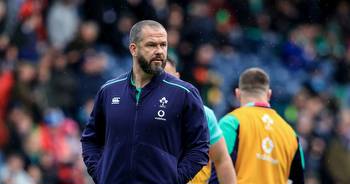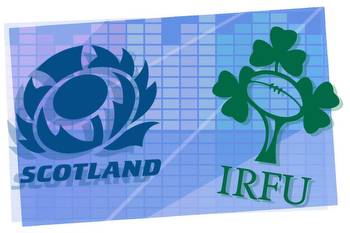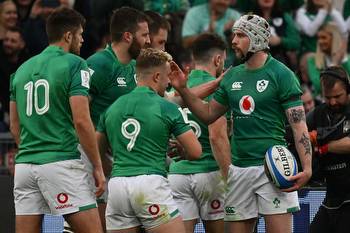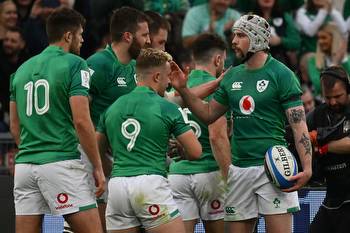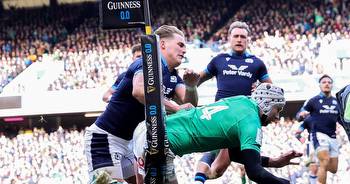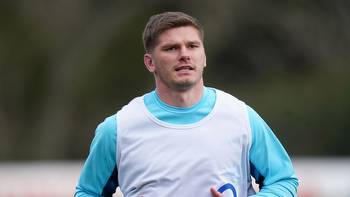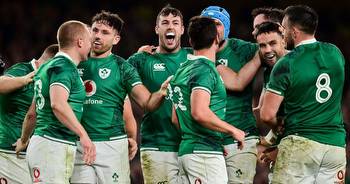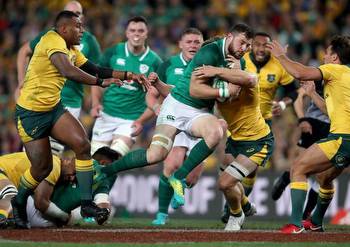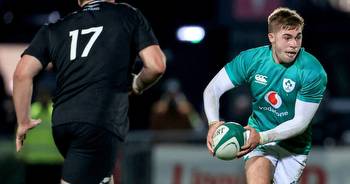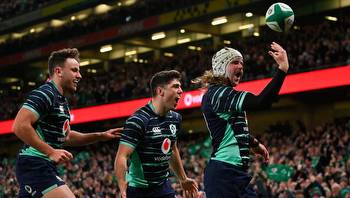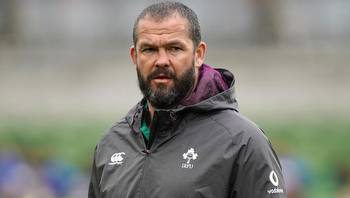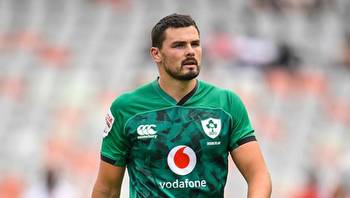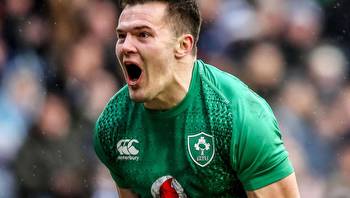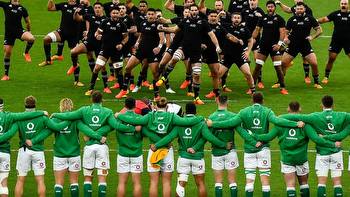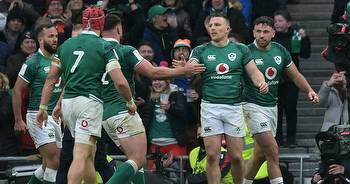Gerry Thornley: The Aviva needs to be at fever pitch for Grand Slam decider
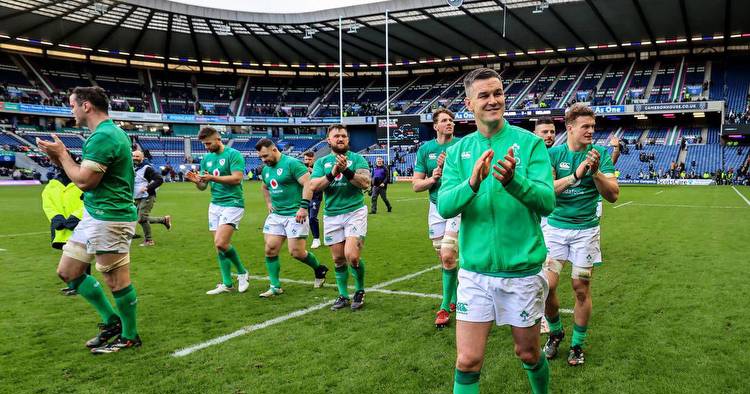
If Ireland are to win just a fourth Grand Slam ever and a third in 15 years after just one in the previous 107, as Diego Maradona said after Argentina dragged themselves to the 1990 World Cup final, this will be one to tell the grandchildren about.
Not to belittle the landmark 2009 Grand Slam breakthrough in any way, but that team of high achievers hardly had a hiccup outside of their own control by comparison.
In an era of 22-man match-day squads, they only used 23 players, with Declan Kidney bringing in Mick O’Driscoll for Malcolm O’Kelly after the first game. He also juggled his starting XV a little, promoting some bloke called Gordon D’Arcy after the first three games on the bench and rotating in three other positions for the penultimate leg in Murrayfield. They had 11 ever-presents.
The 2018 vintage had to cope with a few injuries and ultimately used 31 players. In setting up a tilt at the Grand Slam next Saturday against England, before the opener in Cardiff, this Irish team lost Tadhg Furlong, Cian Healy and then, on the morning of the game, Jamison Gibson-Park to injury.
Dan Sheehan was ruled out on the Thursday before the French game, while Johnny Sexton, Rob Herring and Tadhg Beirne were all sidelined for the Italian job, with Garry Ringrose ruled out the day beforehand.
Last Sunday in Murrayfield, all the adversity happened after kick-off. Ireland finished the game with Robbie Henshaw playing his first game in 17 weeks, Jamison Gibson-Park (who was sensational) his first in seven weeks, Cian Healy making his first appearance of the championship and for the first time in Test rugby at hooker, while Tadhg Furlong had put in a 64-minute shift in his first game for 100 days, Andrew Porter played the full 80.
Oh yes, and the lineout was the platform for the match-winning tries on either side of the half-hour with Josh van Der Flier taking the throws. Pretty good they were too and it comes as no surprise to learn that he had been practising them.
Whatever possessed Andy Farrell and co to call in Healy for David Kilcoyne on the bench – none of us even thought to ask last Friday – it meant Ireland could continue contested scrums and keep the game honest. It’s another box ticked. All being fit and well, like Conor Murray and Johnny Sexton, Healy will be going to his fourth World Cup later this year.
In all of this and many other respects, Ireland had to dig deeper than in any of their previous three games, even that epic against France. They had to find another way.
A recurring feature of Ireland’s series win in New Zealand and the first three wins in this year’s Six Nations has been their penchant for quick starts. They’ve backed that up with solid second quarters and have also finished games strongly, consistently demonstrating an ability to execute when fatigued.
In the first three rounds, Ireland outscored Wales, France and Italy by 55-26 in the opening quarters, scoring eight tries and conceding just two. Leading from the front, they won the second quarters by a cumulative 18-10 and saw out the final quarters strongly, accumulating three tries to nil and 24 points to three.
But their performances in the third quarters were the least productive, managing just one Ross Byrne penalty in the 60th minute against France, albeit conceding only 10 points.
Although quickly into their attacking rhythm in Murrayfield last Sunday, for once Ireland didn’t make this count on the scoreboard, trailing 7-3 after the first quarter before Mack Hansen’s try gave them an interval lead.
At half-time, the disruptions had become so laughable that, well, they smiled and laughed at them. Eh, it wouldn’t always have been like that, one would venture.
The leadership and fierce competitiveness of Furlong, the awesome James Ryan (how was he outsprinting Ryan Baird in the 76th minute with that support run after his shift?), Peter O’Mahony, Johnny Sexton, Garry Ringrose and the utterly unfazed Mr Dependable at the back, Hugo Keenan, shone through. So too did the inspiration of the World Player of the Year, and the X-factor men, James Lowe and Hansen. The bench were huge too, particularly Gibson-Park, Healy, Jack Conan and Ryan Baird.
Adversity? Disruptions? ‘We spit in the face of them,’ is this team’s motto. The more the merrier. Perhaps they’ll even start a game with 13 players someday, just for the hell of it. Then again, perhaps not this week.
Never mind that Ireland have won three in 127 years, this underlines why Slams are so hard to complete
England are boxed into a corner, chastened underdogs and not expected to win by pretty much anyone outside their own camp bar family and friends. Former players have cut loose on them. So, they have absolutely nothing to lose.
There’s talk of Manu Tuilagi perhaps coming back and this game would seem tailor-made for Owen Farrell’s warrior spirit.
They are in the role of party poopers and they’d love to poop Ireland’s St Patrick’s weekend party, having been on the receiving end so many times themselves.
Six times since 1999 they’ve been denied a Slam on the final weekend, three of those times in Dublin, twice in Cardiff and once in Scotland in the so-called Grudge Match of 2000.
Never mind that Ireland have won three in 127 years, this underlines why Slams are so hard to complete. Encouragingly though, of the ten Grand Slams in the Six Nations era, seven of the ten Slams were sealed on home soil.
Even so, back in 2012, Shaun Edwards argued that it was debatable whether winning a Slam or reaching a World Cup final was more difficult. Forget the World Cup for a week; it is a monumental prize, and besides, winning it in 2003 after a Grand Slam shootout in Dublin didn’t do England any harm.
PS: This has been a sad few weeks, with some great servants to Irish rugby having been lost to us, namely Tom Tierney far too prematurely, the engaging and whimsical Brian O’Brien and the legend that was Niall Brophy as both player, administrator and huge character of a man. Always with a twinkle in his eye, he lived life with a smile on his face.
They’d love to have been in the Aviva Stadium next Saturday and might it be an idea to have Stand Up And Fight played on the ground given O’Brien’s rendition of it among the Munster squad one night was what led to be it being adopted by squad and fans alike. As with The Cranberries’ Zombie, so what if it is synonymous with Thomond Park?
Might the Aviva also follow the example of the Stadio Olimpico and Murrayfield and have the band stop playing so the fans can finish the home anthems of their own accord?
Cheltenham week. Paddy’s weekend. The prize of a first Grand Slam coronation in Lansdowne Road. Ever. If ever the Aviva needs to be at fever pitch.
